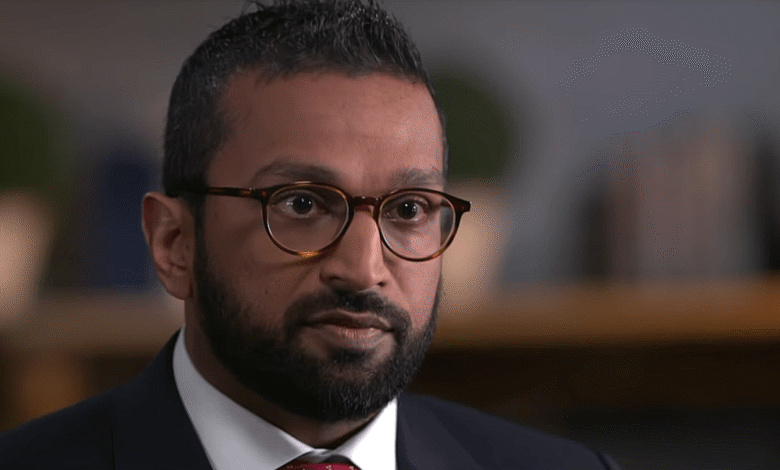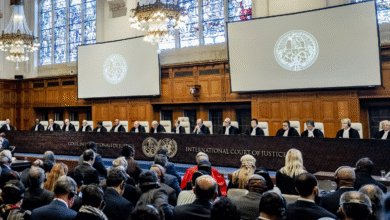Kash Patel Defamation Lawsuit: $250,000 Judgment Awarded

The Kash Patel defamation lawsuit has recently emerged in the spotlight after FBI Director Kash Patel secured a significant default judgment against blogger Jim Stewartson. Awarded a total of $250,000 in compensatory and punitive damages, Patel’s case revolves around Stewartson’s damaging accusations, likening him to a “Kremlin asset” and alleging his involvement in the planning of the January 6 Capitol attack. This verdict not only highlights the intricacies of public figure defamation but also raises important questions about the boundaries of free speech and malicious falsehoods. The judge’s ruling emphasizes that while criticism of public figures is protected, statements made with actual malice fall outside those protections, reaffirming the legal precedent established in similar cases. Patel’s victory serves as a crucial moment in the ongoing discourse around defamation judgments and the legal ramifications of unfounded allegations against individuals, particularly those in high-profile positions.
In the realm of legal battles, the recent judgment in the Kash Patel lawsuit against blogger Jim Stewartson stands as a pivotal case in the discussion of defamation and public accountability. Following serious allegations implying Patel’s affiliations with the Kremlin and incendiary claims regarding his role in the January 6 events, the court found sufficient grounds to issue a ruling in favor of Patel. This incident not only reflects ongoing tensions between public figures and critics but also brings to light the legal frameworks that intend to protect individuals from malicious statements. As tensions rise in the current media landscape, understanding defamation judgments and the responsibilities tied to public discourse becomes increasingly essential. Patel’s case underscores the potential consequences for those who traverse the line between opinion and unsupported allegations in the digital space.
The Defamation Lawsuit: Key Facts and Outcomes
The defamation lawsuit filed by FBI Director Kash Patel against blogger Jim Stewartson has garnered significant attention, as it highlights the challenges public figures face regarding unchecked online accusations. The court found in favor of Patel, awarding him $250,000 in compensatory and punitive damages after Stewartson failed to respond to the lawsuit. This case serves as a potent reminder of the boundaries of free speech, particularly when allegations are made with actual malice, thus crossing the line into defamation.
Judge Andrew Gordon’s ruling underscores the legal principles surrounding defamation judgments, particularly in cases involving public officials. While expressing that factual criticism is protected, he reinforced that defamatory statements made with malice are not, thus justifying the award to Patel. The ruling also sheds light on the importance of accountability in the digital age, where anyone can make serious allegations without repercussions if not rooted in fact.
Background on Kash Patel and the Allegations
Kash Patel, who serves as the FBI Director, has been a notable figure in American politics, particularly during the Trump administration. The allegations levied against him by Jim Stewartson, which included being labeled a ‘Kremlin asset’ and suggestions of plotting an insurrection, reflect the intense scrutiny often directed at individuals in high office. Such claims not only impact professional reputations but can also have wider implications for public trust in government institutions.
Stewartson’s accusations referenced Patel’s connection to significant political events, including the January 6 Capitol riots, thereby fueling public narratives that question the integrity of federal officials. However, as the court concluded, these statements lacked factual support and were made recklessly, demonstrating how damaging unfounded conspiracy theories can be within the political discourse.
Legal Implications of the Judgment
The court’s decision to impose both compensatory and punitive damages in the Kash Patel defamation lawsuit carries critical legal implications for similar cases in the future. It establishes precedent on the handling of defamation claims where actual malice can be substantiated. The judgement suggests that public figures possess certain legal protections against unwarranted attacks on their character, particularly those grounded in serious allegations like treason or conspiracy.
In this context, the ruling may encourage other public figures facing defamatory statements to pursue legal action, knowing that a court will scrutinize the intent and truth of such claims. Moreover, it highlights the judiciary’s role in balancing free speech with the reputational rights of individuals, potentially serving as a deterrent against reckless online commentary.
Public Reaction and the Role of Social Media
The public reaction to the Kash Patel defamation lawsuit has illuminated the fine line between free speech and defamation, particularly in the age of social media. Stewartson’s claims gained traction online, further complicating the narrative surrounding Patel’s public persona. Social media platforms can amplify misinformation quickly, illustrating why legal recourse is essential for individuals adversely affected by such allegations.
Following the default judgment, discussions have surged on social media, with users debating the merits of the court’s decision versus the implications for freedom of expression. Many have also expressed concerns about the chilling effect such lawsuits could have on critical journalism, raising questions about what constitutes protected speech in the eyes of the law.
Impact on Kash Patel’s Reputation
Despite the court ruling in favor of Kash Patel, the implications of the defamation allegations may linger on his reputation. The judge noted that Patel’s confirmation as FBI Director remained intact despite the allegations leveled against him, suggesting professional resilience. However, the stigma attached to being associated with such serious accusations could still influence public perception, especially among critics of the current administration.
The legal win may serve as a badge of honor in defending against baseless allegations; however, becoming a target of public scrutiny could have lasting effects on Patel’s career and future opportunities. The judgment does reiterate the necessity of separating factual reporting from sensationalism in media narratives involving public officials.
Comparisons with the Jim Stewartson Case
The Jim Stewartson case exemplifies broader issues surrounding defamation suits against critics of government figures. Stewartson, while proclaiming his reports were accurate, found himself in court defending against a claim that he acted with malice. This scenario presents an ongoing debate in journalism regarding the fears of legal repercussions when expressing viewpoints on controversial figures.
Moreover, Stewartson’s intention to pursue legal avenues against Patel and Flynn suggests the possibility of a counter-offensive from individuals on the receiving end of lawsuits aimed at silencing dissenting voices. Such developments may create a paradox within the legal system, where individuals both defend against defamation and assert their right to free speech.
Investigation and Accountability in Journalism
The outcome of the Kash Patel defamation lawsuit raises significant questions about accountability in journalism, especially when dealing with public officials. Accuracy and verifiability are paramount, and when journalists stray from these principles, they risk legal challenges that can distort their intention to inform the public. This case exemplifies the importance of thorough fact-checking and ethical reporting, particularly as accusations become more sensationalized.
Moreover, it emphasizes the role of responsible journalism in maintaining a healthy democracy. When personal attacks replace factual reporting, the public’s trust in information sources diminishes, leading to polarized opinions and potential manipulation. Establishing standards for accountability among journalists is crucial in preventing the spread of misinformation and protecting public figures from unwarranted defamation.
The Role of Defamation in Modern Political Discourse
In modern political discourse, defamation plays a critical role in shaping narratives and influencing public opinion. The Kash Patel defamation lawsuit highlights how easily words can cross the line into harmful territory, especially when they concern accusations of treason or collusion. Given the charged atmosphere surrounding political figures, the potential for damaging claims can escalate quickly, necessitating a legal framework to address these actions.
Defamation has become a tool often wielded by and against those in power, leading to a cycle of retaliatory claims and counterclaims. This reflects a troubling trend where legal threats overshadow genuine discourse, requiring careful navigation to ensure that criticism remains within the bounds of free speech. The Patel case reinforces the nuanced complexity of holding public officials accountable while safeguarding against unsubstantiated attacks.
Future Implications for Defamation Laws
The legal precedent set by the Kash Patel defamation lawsuit may influence similar future cases and the overall landscape of defamation law. With increasing incidents of online and offline defamation targeting public figures, courts may need to reevaluate how they approach such claims. The willingness of courts to impose punitive damages could embolden others to seek justice against defamatory statements, reflecting a potential retraction in freedom alongside heightened accountability.
The evolving nature of defamation laws will likely continue to adapt as society grapples with the prevalence of misinformation and the responsibilities of media entities. Future litigation may urge courts to further define the standards for identifying actual malice and harm, ensuring that individuals like Patel receive fair treatment while balancing the rights of free expression for those who comment on public affairs.
Frequently Asked Questions
What are the main details of the Kash Patel defamation lawsuit against Jim Stewartson?
The Kash Patel defamation lawsuit against Jim Stewartson centers on his accusations that Patel was a ‘Kremlin asset’ and involved in planning the January 6 Capitol attack. The case resulted in a default judgment where Patel and his foundation were awarded $250,000 for damages after Stewartson failed to respond to court filings.
What was the outcome of the Kash Patel lawsuit against the blogger Jim Stewartson?
The outcome of the Kash Patel lawsuit was a default judgment in favor of Patel, resulting in an award of $250,000 for compensatory and punitive damages. The court found that Stewartson’s false statements about Patel constituted defamation.
How did Judge Andrew Gordon rule on the defamation judgment in the Kash Patel case?
Judge Andrew Gordon ruled that Jim Stewartson’s statements regarding Kash Patel were defamatory and made with actual malice, leading to a default judgment awarding Patel $250,000. The judge highlighted the need to deter such defamation by issuing punitive damages.
What accusations led to the Kash Patel defamation lawsuit?
The accusations leading to the Kash Patel defamation lawsuit included claims by Jim Stewartson that Patel was a ‘Kremlin asset’, and had engaged in conspiratorial actions against the U.S. government, specifically relating to the events of January 6, 2021.
Why did Judge Gordon decide to issue a default judgment in the Kash Patel lawsuit?
Judge Gordon decided to issue a default judgment in the Kash Patel lawsuit because Jim Stewartson did not respond to the legal proceedings, and this failure warranted a ruling in favor of Patel and his foundation by default.
What implications does the Kash Patel defamation case have for public figures and defamation law?
The Kash Patel defamation case underscores the legal balance between protected speech regarding public figures and the consequences of defamatory statements made with actual malice. It demonstrates that falsehoods can result in significant legal repercussions.
What was the response from Jim Stewartson regarding the Kash Patel defamation lawsuit?
Jim Stewartson claimed he was unaware of the Kash Patel defamation lawsuit, asserting he was not properly served. He also stated that the lawsuit was an attempt to intimidate him for his critical reporting on Patel and others connected to the QAnon movement.
How did the court address the issue of damages in the Kash Patel defamation judgment?
In the Kash Patel defamation judgment, the court acknowledged the lack of concrete evidence for damages but granted both compensatory and punitive damages based on the nature of Stewartson’s defamatory statements, which were ruled harmful to Patel’s reputation.
What are the potential next steps for both parties following the Kash Patel lawsuit judgment?
Following the Kash Patel lawsuit judgment, potential next steps include Jim Stewartson possibly appealing the ruling, and Kash Patel may pursue the collection of the awarded damages, depending on Stewartson’s response to the judgment.
| Key Points | Details | |
|---|---|---|
| Case Outcome | Kash Patel wins a default judgment in his defamation lawsuit against Jim Stewartson. | |
| Damages Awarded | $250,000 total: $100,000 compensatory, $100,000 punitive for Patel, $25,000 compensatory, $25,000 punitive for Kash Foundation. | |
| Accusations | Stewartson falsely accused Patel of being a ‘Kremlin asset’ and planning the January 6 Capitol attack. | |
| Court Ruling | Judge Andrew Gordon ruled that defamatory falsehoods made with actual malice are not protected speech. | |
| Response from Stewartson | Stewartson claimed he was unaware of the lawsuit and stated it was intended to intimidate him. | |
| Judicial Comments | Despite ruling for Patel, Judge Gordon noted scant evidence of harm to Patel’s image or foundation. | |
| Evidence of Harm | An expert’s report suggested damage to Patel’s reputation, but no concrete examples were provided. | |
Summary
The Kash Patel defamation lawsuit concluded with Patel winning a substantial judgment against blogger Jim Stewartson. The case underscores the legal boundaries surrounding free speech, especially regarding public figures, as the court affirmed that while public figures must endure criticism, defamatory statements made with malice are actionable. The awarded damages reflect the need to deter similar defamatory claims in the future.




